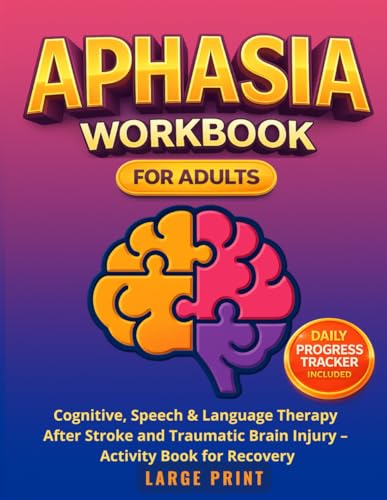Finding top-notch adult speech therapy services near you can be a daunting task, given the wide range of options available. However, understanding the key steps in this process can greatly improve your therapy experience.
From initial assessments to tailored treatment plans, each stage plays a crucial role in your speech therapy journey. Let's explore how each step contributes to your overall progress and success in achieving improved communication skills.
Key Takeaways
- Utilize online directories and recommendations for finding adult speech therapy services.
- Conduct thorough assessments and set clear therapy goals to tailor treatment plans.
- Evaluate speech difficulties with standardized tools and personalized assessments.
- Implement customized therapy plans, monitor progress, and adjust interventions as needed.

TalkTools Horn Kit | Oral Motor Placement Therapy | Improve Speech, Tongue Lip Placement | Reduce or Eliminate Drooling | Abdominal Grading | Controlled Oral Airflow, and Speech Clarity – 12 Tools
Comprehensive Oral Motor Development: The TalkTools Horn Kit is a specialized therapy tool that integrates seamlessly with traditional…
As an affiliate, we earn on qualifying purchases.
As an affiliate, we earn on qualifying purchases.
Locating Adult Speech Therapy Services
To find adult speech therapy services in your area, begin by exploring online directories like ASHA's ProFind or Yelp. These resources can help you locate reputable speech therapists specializing in various communication disorders, including aphasia treatment. When searching for aphasia treatment, it's essential to consider the expertise and experience of the speech therapists in this specific area. Look for professionals who've a proven track record of working with individuals with aphasia to ensure you receive quality care tailored to your needs.
Reading reviews and ratings of adult speech therapy services can also provide valuable insights into the quality of care and patient satisfaction. Additionally, asking for recommendations from healthcare professionals like your primary care physician or ENT specialist can lead you to trusted speech therapists who specialize in aphasia treatment. By taking these steps and utilizing available resources, you can find the right adult speech therapy services to support your journey towards improved communication skills.

Aphasia Workbook for Adults: Large Print Recovery Exercise for Stroke and Brain Injury: Cognitive, Speech & Language Therapy After Stroke and Traumatic Brain Injury – Activity Book for Recovery
As an affiliate, we earn on qualifying purchases.
As an affiliate, we earn on qualifying purchases.
Identifying Speech Therapy Needs

As we embark on the journey of identifying speech therapy needs, let's start by conducting a thorough assessment to pinpoint areas of difficulty.
By setting clear therapy goals and tailoring treatment plans to address specific challenges, we can pave the way for effective intervention strategies.
Understanding how speech and language issues impact daily life is crucial for customizing speech therapy to enhance communication skills and overall quality of life.
Assessing Speech Difficulties
When evaluating speech difficulties in adults for speech therapy needs, a comprehensive assessment is essential to pinpoint specific areas requiring intervention. Utilizing standardized assessment tools like the Western Aphasia Battery or Boston Diagnostic Aphasia Exam aids in accurate diagnosis. It's crucial to assess language, cognition, motor speech, voice, resonance, and fluency to get a holistic view of the individual's speech abilities.
Additional assessments such as cognitive, visual neglect, and swallowing evaluations should also be considered to address comprehensive speech therapy needs effectively. Tailoring assessment procedures to the individual client ensures a targeted approach for treatment planning in adult speech therapy. By conducting thorough assessments, speech therapists can create personalized interventions that cater to the specific needs of each adult seeking speech therapy services.
Setting Therapy Goals
Identifying speech therapy needs involves analyzing specific areas for improvement and tailoring individualized goals to address these requirements effectively. When setting therapy goals, it's crucial to consider the unique challenges each individual faces. Below is a Goal Bank table to help guide the goal-setting process:
| Goal Area | Example Goals | Measurement Criteria |
|---|---|---|
| Aphasia | Improve word retrieval skills | Increase correct word recall rate by 20% by the end of the month. |
| Dysarthria | Enhance articulation clarity | Achieve 80% intelligibility score during structured conversation. |
| Memory | Strengthen short-term memory recall | Remember and accurately repeat a list of 10 words after a 10-minute delay. |
| AAC (Augmentative and Alternative Communication) | Increase proficiency in using AAC device | Independently compose and send a message using the device. |
Tailoring Treatment Plans
Tailoring personalized treatment plans for individuals with speech therapy needs involves a comprehensive evaluation of their speech, language, cognitive, and swallowing functions. By identifying specific areas of impairment, we can create customized treatment plans that address each patient's unique communication challenges.
For instance, in cases of Wernicke's aphasia, which affects language comprehension, therapy may focus on improving understanding and expression. These tailored plans often incorporate a range of interventions, including speech exercises, cognitive training, swallowing therapy, and AAC strategies.
Regular monitoring allows us to make necessary adjustments to ensure progress towards therapeutic goals. This individualized approach ensures that each person receives the most effective and appropriate care for their specific speech disorder, promoting better outcomes and improved quality of life.

Joyreal AAC Device for Autism, Non Verbal Communication Tools for Speech Therapy & Stroke Rehab. Communication Tablet, Autism Talking Aids with 8 Programmable Buttons & Adjustable Volume
37 Easy To Understand Talking Buttons- Our AAC device for speech comes with 37 pre-installed instructions in a…
As an affiliate, we earn on qualifying purchases.
As an affiliate, we earn on qualifying purchases.
Scheduling Appointments With Therapists

To schedule an appointment with a therapist for adult speech therapy, search online for clinics in your area or ask for recommendations from your primary care physician. Once you've identified potential clinics, it's essential to check the therapists' availability through their websites or by contacting them directly to set up an appointment. Consider important factors like location, therapist specialization, and insurance coverage when making your decision.
- Check Insurance Coverage: Inquire about the clinic's accepted insurance plans to ensure coverage for your speech therapy sessions.
- Ask About Therapist Specialization: Consider therapists who specialize in adult speech therapy to receive the most tailored treatment for your needs.
- Review Clinic Policies: Familiarize yourself with the clinic's scheduling guidelines and policies to ensure a smooth appointment booking process.

The Adult Speech Therapy Workbook
As an affiliate, we earn on qualifying purchases.
As an affiliate, we earn on qualifying purchases.
Setting Speech Therapy Goals

As we move forward in your speech therapy journey, let's take a moment to highlight the significance of setting specific and measurable objectives. These goals serve as essential markers that not only guide our sessions but also help us effectively monitor your progress.
Goal Setting Importance
Understanding the significance of setting speech therapy goals is essential for guiding personalized treatment plans and monitoring progress effectively. Goals in speech therapy serve as beacons of progress, guiding both therapists and clients on the journey towards improved communication skills.
Here are three key reasons why goal setting is crucial in speech therapy:
- Focus on Specific Areas: Well-defined goals help concentrate efforts on areas like aphasia, dysarthria, memory, and AAC.
- Roadmap for Therapy: Goals provide a structured path for therapy sessions, ensuring targeted interventions for optimal outcomes.
- Customization: Having a variety of goal options allows for tailoring therapy to meet the unique requirements of each individual.
Specific, Measurable Objectives
In speech therapy, we craft specific and measurable objectives tailored to each individual's unique needs and abilities to ensure targeted progress and effective outcomes. Assessment plays a crucial role in identifying areas of difficulty and setting realistic goals that address speech and communication challenges.
By establishing clear objectives related to articulation, language, fluency, voice, and swallowing, based on the patient's diagnosis and functional limitations, we create a roadmap for therapy. These goals are designed to be clear, achievable, and focused, providing a framework for tracking progress and evaluating the success of the treatment.
Measurable objectives not only enhance motivation but also guide treatment planning and facilitate open communication between the therapist and the patient, fostering a collaborative and effective therapeutic journey.
Tracking Progress Effectively
Crafting personalized speech therapy goals is essential for effectively tracking progress and maximizing treatment outcomes. When setting goals, it's crucial to assess the individual's current abilities and tailor the objectives to their specific needs.
Here are three key aspects to consider when establishing speech therapy goals:
- Individualization: Customizing goals based on the patient's unique challenges and strengths ensures relevance and motivation.
- Measurability: Defining clear, measurable targets allows for objective assessment of progress over time.
- Relevance: Goals should be meaningful to the individual, aligning with their aspirations and daily communication needs.
Participating in Therapy Sessions

Engage actively in therapy sessions to make the most of your progress and outcomes. When working on motor speech challenges, following the therapist's guidance and completing assigned tasks is crucial for optimal results. It's vital to communicate openly with your speech therapist about any difficulties or improvements you experience during sessions. Consistency in attendance and active participation will help maintain the momentum of your therapy progress.
Additionally, taking advantage of the resources and materials provided by your therapist can greatly enhance your learning and practice outside of therapy sessions. By fully immersing yourself in the therapeutic process, you set yourself up for success in improving your motor speech abilities.
Engaging in Speech Exercises

When participating in speech therapy, it's essential to actively engage in various speech exercises tailored to address specific speech difficulties. These exercises are designed to target areas such as articulation, fluency, voice, and resonance, helping to improve speech intelligibility and overall communication effectiveness.
Here are three important points to consider when engaging in speech exercises:
- Tailored Approach: Speech exercises are customized to meet individual needs and are often part of a comprehensive speech therapy plan. By focusing on your specific challenges, these exercises can effectively address your unique speech difficulties.
- Diverse Activities: Speech exercises can encompass a variety of activities such as repetition drills, reading aloud, tongue twisters, and vocalization tasks. Engaging in a range of exercises keeps therapy sessions dynamic and helps target different aspects of speech.
- Consistent Practice: Consistency is key to seeing progress in speech therapy. Regularly practicing speech exercises can lead to improved speech clarity, enhanced confidence, and refined communication skills. Remember, the more you practice, the more you can benefit from the therapy.
Tracking Progress and Adjustments

As individuals progress through speech therapy, it becomes crucial to monitor their advancements and make necessary adjustments to ensure the continued effectiveness of the treatment plan.
Tracking progress in adult speech therapy involves using measurable goals and objective data to monitor improvements over time. Speech therapists regularly assess and document changes in speech and language abilities during therapy sessions to track progress accurately. Adjustments in treatment plans are made based on the observed progress, ensuring that therapy remains effective and tailored to individual needs.
Objective measurements, such as standardized assessments and functional communication tasks, help in tracking progress and determining the success of therapy interventions. Regular progress reviews allow for modifications in therapy techniques, goals, or strategies to address any challenges or facilitate further improvements in speech and language skills.
To assist in this process, therapists may provide resources like a Free PDF to help individuals and their families understand the progress being made and the adjustments being implemented.
Communicating With Therapists Effectively

Effective communication with your speech therapist plays a pivotal role in achieving successful outcomes in adult speech therapy. It's essential to express your concerns, goals, and progress clearly to allow therapists to personalize treatment plans according to your specific needs.
Providing detailed information about your symptoms and experiences will assist therapists in making accurate assessments and recommendations. Asking questions and seeking clarification during therapy sessions promotes a better understanding of the strategies and goals involved in your treatment.
Open and honest communication fosters a strong therapeutic relationship, leading to improved engagement and better results in speech therapy.
- Express concerns, goals, and progress clearly to personalize treatment plans.
- Provide detailed information about symptoms and experiences for accurate assessments.
- Ask questions and seek clarification to enhance understanding of therapy strategies and goals.
Maintaining Speech Therapy Gains

To maintain the progress achieved in adult speech therapy, consistent practice and follow-up sessions are essential for enhancing therapy gains.
After completing treatment, it's crucial to continue utilizing the home exercises and strategies recommended by the speech therapist. These practices support ongoing progress and help prevent regression in speech therapy gains.
Regular communication with the speech therapist is key to receiving guidance and support as you continue your journey. Incorporating speech and language activities into your daily routines can reinforce the skills learned during therapy sessions, making progress more sustainable.
Setting realistic goals and tracking your progress over time can also serve as motivation for continued improvement in speech and communication abilities. By staying committed to the treatment plan and staying in touch with your therapist, you can maintain and even build upon the gains made during adult speech therapy.
Frequently Asked Questions
How to Do Speech Therapy for Adults?
When it comes to speech therapy for adults, we tailor our approach to each individual's unique needs. Our goal is to enhance communication and swallowing functions through evidence-based techniques like Expiratory Muscle Strength Training for improved speech quality.
Treatment for dysarthria focuses on articulation and speech clarity, while hypernasal speech interventions aim to refine speech resonance. We're committed to providing personalized care to help you achieve your communication goals effectively.
What Are the Steps in Speech Therapy?
Sure!
In speech therapy, the steps typically involve:
- Assessment to identify challenges
- Setting goals to guide therapy
- Planning treatments tailored to individual needs
- Engaging in therapy sessions
- Practicing exercises
- Monitoring progress to make necessary adjustments
This process helps individuals improve their speech and language skills effectively.
How Can I Do Speech Therapy Myself?
We can do speech therapy ourselves by accessing online resources, such as exercises, apps, and videos for at-home practice. Utilize speech therapy worksheets and workbooks for self-paced learning.
Virtual platforms offer interactive sessions with licensed professionals for personalized guidance. Engage in online support groups to connect with others facing similar challenges.
Practice daily exercises, vocal warm-ups, and mindfulness techniques to boost speech clarity and confidence independently.
How Do I Start Speech Therapy at Home?
We can start speech therapy at home by setting clear goals and establishing a structured practice routine. Online resources and apps offer tailored exercises for individual needs. Consistent daily practice is crucial for seeing progress.
Creating communication opportunities in various settings enhances real-world application of techniques. Monitoring our progress and adjusting goals as needed is important for improvement.
Seek professional guidance for more complex speech therapy needs to ensure effective progress.
Conclusion
As we journey through adult speech therapy, we plant seeds of change and growth within ourselves.
Like a delicate flower blooming in the spring, our voices can blossom and flourish with the nurturing care of skilled therapists.
Let's continue to water our progress with dedication and perseverance, knowing that each session brings us closer to the vibrant, confident communicators we're meant to be.
Together, we can cultivate a harmonious symphony of speech and expression.










